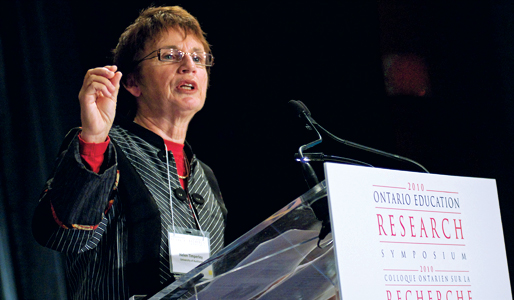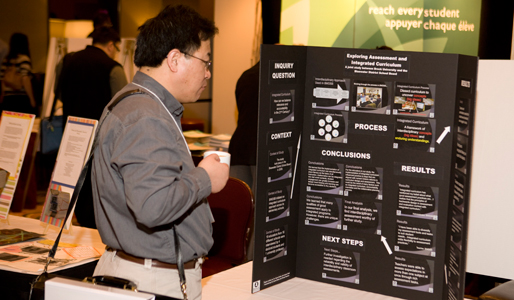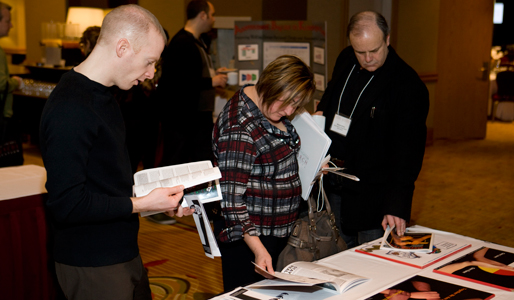PS News presents reports on recent College activities and a selection of announcements, events and initiatives in the wider education community that may be of interest to our members.
Research symposium
The Ministry of Education held its fifth annual Research Symposium in Toronto in February.
About 450 educators and researchers from Ontario boards, faculties of education and the Ministry of Education attended.
Presentations and workshops covered research on teaching math as well as on professional learning methods, means of engaging students and involving parents, summer learning, mental health, literacy, leadership and using data to improve outcomes for students.
Helen Timperley, professor of Education at the University of Auckland in New Zealand, asked, “Why don’t teachers use our research?” adding, “We’ve come up with powerful ideas.”
She provided her own answer: “We have not engaged them.” She pointed out that modes typically used in professional learning are the ones teachers criticize if used in classrooms. “We have to begin by understanding how people learn, and then shape conditions essential for using a range of evidence.”
Timperley concluded that teachers can use evidence to improve their teaching practice in ways that work for students. It requires evidence from the classroom about teaching practice and student learning, evidence from other research, and support from school leaders so that teachers develop the inquiry habit as well as the knowledge and skills needed to learn from evidence.
This device is used by the Centre for the Use of Research and Evidence in Education (CUREE) in England. Its Chief Executive Officer Philippa Cordingley explored the connections between research and classroom teaching, with emphasis on the role of continuing professional learning. She presented a model of peer coaching and spoke of research as bites, tasters and nuggets. “Teachers aren’t short of stuff,” she said. “They are short of ways to find the stuff.” (www.curee-paccts.com/resources/route-map.)
Participants chose to attend workshops on two of 20 different topics. Several workshops presented research on teaching math. Others were on methods of professional learning, involving parents – programs such as summer learning, mental health literacy, leadership, methods of engaging students, and using data to improve outcomes for students.
Four groups, whose research was unique or of overarching interest, presented 10-minute vignettes to the entire conference. Robert Brandstetter, OCT, a teacher at St. Francis Xavier Secondary School in the Peel DSB talked about students as co-instructors with Amaryllis, a Grade 12 student, and Alexis, in Grade 11.
Research presented at the conference, whether in a workshop or a poster, had to be recent or underway and involve at least two partners and more than one school. It had to be geared to improving school or classroom practice and in line with the Ministry’s three key goals: improving student achievement, reducing gaps in learning and increasing public confidence in public education.
 |
|
Among presenters were Helen Timperley, a professor of education at the University of Auckland in New Zealand. |
 |
 |
 |
 |
 |
 |
 |
 |
 |
 |